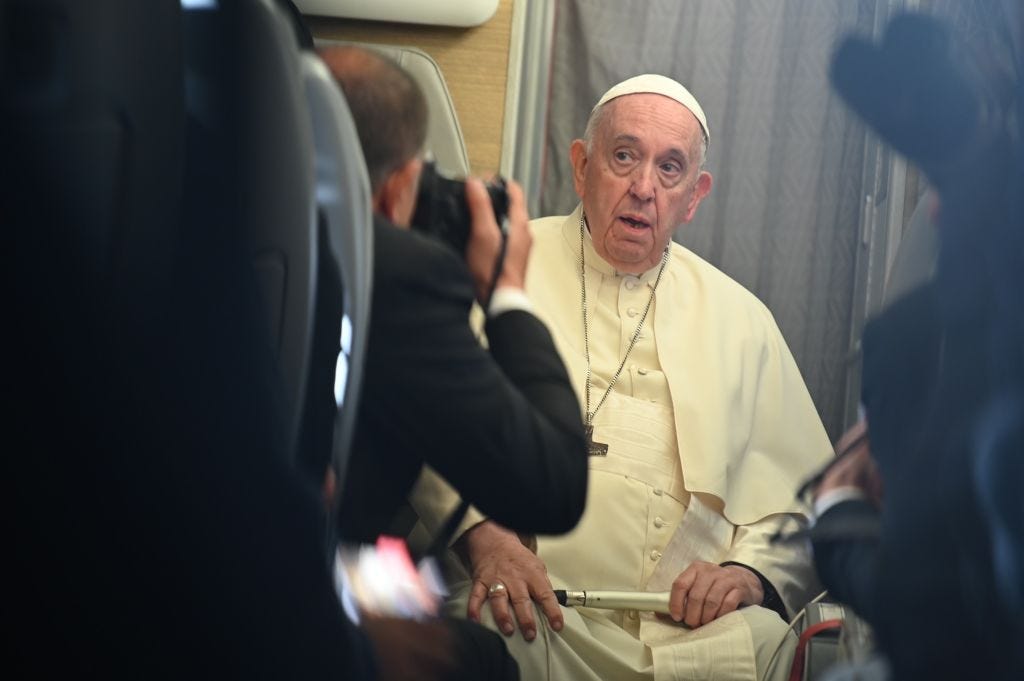Saying nope to the pope
Indigenous advocate explains his decision to turn down visit with Francis -- and the importance of the pope's use of the word 'genocide.'

Who among us could say they would turn down an invitation to meet and speak…
Keep reading with a 7-day free trial
Subscribe to Indigenous Wire to keep reading this post and get 7 days of free access to the full post archives.

